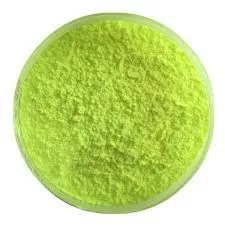The Role of Chemicals in Cooling Water Systems
Cooling water systems are essential components in various industrial processes, power generation, and HVAC (heating, ventilation, and air conditioning) operations. They help regulate equipment temperatures, manage heat dissipation, and ensure optimal performance. However, maintaining efficiency and prolonging the life of cooling water systems requires proper management of water chemistry, which often involves the use of specific chemicals.
Importance of Chemical Additives
The primary reason for introducing chemicals into cooling water systems is to prevent corrosion—a common issue that arises from the interaction between metal surfaces and water. Corrosion can lead to significant maintenance costs, equipment failures, and operational downtimes. Additionally, the formation of scale due to mineral deposits can hinder heat transfer efficiencies, making cooling systems less effective. To combat these problems, several chemicals are routinely utilized.
1. Corrosion Inhibitors These chemicals are essential for protecting metal surfaces in cooling systems. They work by forming a protective film on the metal surface, preventing corrosive agents in water from penetrating and causing damage. Common corrosion inhibitors include phosphates, molybdates, and azole compounds. Each inhibitor targets specific metals, allowing facility managers to tailor their water treatment programs based on the materials used in their cooling systems.
2. Scale Inhibitors Water often contains dissolved minerals such as calcium and magnesium. When conditions in a cooling system change, these minerals can precipitate and create scale buildup on heat exchangers and cooling towers. Scale formation reduces efficiency and increases energy costs. Chemicals such as polyacrylic acid and phosphonates are used as scale inhibitors to prevent mineral deposition, ensuring smooth operation and enhancing thermal efficiency.
3. Biocides Cooling water systems are susceptible to biological growth, including algae, bacteria, and fungi. These organisms can clog systems, reduce heat transfer efficiency, and compromise water quality. Biocides are necessary to manage this risk. While chlorine is a traditional biocide, it can be harsh on system components; therefore, alternatives like bromine, isothiazolinones, and glutaraldehyde are often employed to control microbial growth without damaging the system.
4. pH Adjusters The pH level of cooling water plays a critical role in determining the effectiveness of corrosion and scale inhibitors. Extreme pH levels can lead to increased corrosion rates or enhanced scaling. Using chemicals like sodium hydroxide or sulfuric acid helps maintain the desired pH range, ensuring that the system operates efficiently and safely.
Implementing a Chemical Treatment Program
chemical used for cooling water

To achieve optimal results, cooling water treatment typically involves a systematic approach
- Water Testing Routine testing of cooling water is crucial to monitor chemical concentrations, pH levels, and potential contamination by biological entities
. Regular analysis allows for timely adjustments to the chemical dosing regimen.- Monitoring and Control Automated systems can help in continuously monitoring the chemical levels in the cooling water, allowing for real-time adjustments based on operational conditions.
- Training and Safety Personnel involved in the management of cooling water systems must be adequately trained in chemical handling and safety protocols. This includes understanding the properties of the chemicals used and their potential environmental impacts.
Environmental Considerations
With increasing regulatory scrutiny regarding environmental protection, it is vital for industries to consider the ecological implications of the chemicals they use. Biodegradable products and alternative formulations are becoming popular choices, aimed at minimizing harmful discharges and promoting sustainability.
Conclusion
In summary, the use of chemicals in cooling water systems is crucial for ensuring operational efficiency, prolonging equipment lifespan, and preventing costly failures. By implementing a comprehensive water treatment strategy that includes corrosion inhibitors, scale inhibitors, biocides, and pH adjusters, industries can effectively manage their cooling water systems. Nonetheless, ongoing monitoring, training, and adherence to environmental regulations will remain critical as facilities aim to balance efficiency with sustainability in the years to come.

